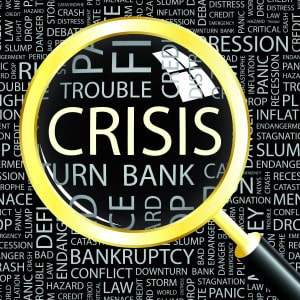economic recession in canada
Economic recession in Canada: In Canada, the economy is under pressure
The economy in Canada is under pressure as the country deals with the fallout of the coronavirus pandemic. The pandemic has hit Canada hard. On one hand, certain Canadian businesses have shut down and people losing their jobs. On the other, there are job openings for other Canadian businesses. In August 2022, the unemployment rate in Canada increased from its record low in June and July, to 5.4%. The Canadian government has been working on trying to mitigate the damage and create supportable economic growth, but the economy is still struggling. The economic news is not good.
Coming out of the COVID economy there are many forces around the world causing global inflation. Supply chain shortages and the war in Ukraine are but two such global forces. Canada is experiencing inflationary pressures like every other country. Chief economists have mixed views on whether there will be an economic recession in Canada.
In response to the new global inflationary pressures, the Bank of Canada, like many other central banks, is raising its key interest rate regularly and significantly. The Bank of Canada is using its old domestic inflation policy rate fighting tools to fight these new pressures. It has promised more aggressive interest rate hikes. The federal government supports these rate hikes. Prime Minister Trudeau and his deputy chief, our Finance Minister and Deputy Prime Minister, Chrystia Freeland have said so.
As a result, the pressure on the economy is evident in the housing market. Home sales have dropped sharply, and house prices are also starting to fall. Notwithstanding the Bank of Canada’s key interest policy rate was designed to calm down a frothy real estate market, it is also a worry for the Canadian economy, as the housing market has been one of the bright spots in recent years.
The Bank of Canada’s inflation-fighting key interest rate policy tool has the potential not only to reduce inflation but if not closely managed, could throw us into a Canadian recession. We see financial markets, especially the stock markets, reacting negatively to this possibility.
Craig Wright, Senior Vice President & Chief Economist of Royal Bank of Canada believes Canada is headed for a recession, but that it will be a moderate one. So the ultimate question Canadians are asking is there a potential recession on the horizon or, how likely is an economic recession in Canada?
Economic recession in Canada: Bank of Canada believes that higher rates are essential to controlling inflation expectations
Higher interest rates ultimately force a contraction of the Canadian economy and an overall economic decline. The Bank of Canada really only has this one tool if it is going to act. Inflation is strong and is affecting longer-run business and consumer expectations. If inflation expectations rise, they can become self-fulfilling.
If inflation rates stay high, it can have very troubling economic impacts. Businesses will start charging more for their products. For things we need, we would have to pay more and would probably start asking for higher salaries and wages. If Canadians think inflation will go way past the Bank of Canada’s target, it could cause big problems with greater interest-rate hikes.
Both the US Fed and the Bank of Canada are increasing interest rates in an effort to control inflation. And neither bank is finished yet. The U.S. Fed and the Bank of Canada are expected to raise rates through to the end of 2022. That’s high enough to significantly restrict growth.

Economic recession in Canada: Although rates will eventually go down, they will not do so until inflation has cooled off
Although oil prices have been settling down and therefore prices at the pumps are falling, food and other consumer goods continue to have steady price increases. Continued increases eventually get to the point where they are unsustainable. Inflation won’t slow down until demand falls. Central banks will not ease interest rates until demand falls off sufficiently to reverse the current inflationary trends. If global economies cool off, it will help temper inflation.
Although labour shortages are preventing some expansion, many markets are still growing. However, disruptions from the pandemic continue to make it difficult for China to expand. Slowing growth abroad may have some negative effects on the US and Canadian economies as well.
The Bank of Canada will have to work very hard to find the right balance of interest rate hikes to cool inflation without causing an economic crisis or a recession.
Are we heading towards an economic recession in Canada and what can you do to help yourself?
I don’t know if the Bank of Canada’s current inflation-fighting efforts will force an economic recession in Canada, but Canadians have good reason to be concerned.
If you’re concerned about a recession in the near future, it’s important to be more mindful of your finances and think carefully about whether you can afford major purchases. What would happen if you were to lose your job or have an unexpected expense arise? It’s best to be prepared by carefully evaluating your savings and emergency fund now.
Your employment situation, savings, as well as spending practices can all contribute to how well you weather an economic downturn. Consequently, it is prudent to be prepared for bumpy rides by having a savings cushion and being mindful of living within your means. Additionally, those who are dissatisfied with their current employment or earnings may currently want to check out other opportunities prior to the Canadian economic situation worsening.
Douglas Porter, the Bank of Montreal chief economist, explains that how much Canadians feel the slowdown in the Canadian economy will depend on their individual circumstances. This includes what sector they’re employed in and whether they’re a borrower or saver.
One of the risks of a recession is the possibility of inflation eroding purchasing power and cementing in lower real wages. This is why it’s important to think carefully about asking for a raise now before a recession hits. Anyone considering a large purchase, like buying a home, must look at affordability.
Not only can you get the necessary financing to make the purchase, but can you afford the monthly payments? If you believe a recession is inevitable, then you should hold off making that real estate purchase because home prices inevitably will fall further in a recession.

What are 8 things you can do to prepare for an economic recession in Canada?
There are certain things Canadians can do to protect against an oncoming recession. It is not easy. It takes planning, belt-tightening and behaviour modification. Some possible steps include:
- Begin creating a household budget as soon as possible. This will help you to keep track of your income and expenses and help you make responsible financial decisions to not spend more than your household earns. Do not forget to use your family net income after accounting for income tax as your top income line.
- Now that you have your budget prepared, make sure you’re mindful of your spending and cut back where you can. Your budget needs to not only be break-even but there also needs to be a line for monthly savings.
- Credit cards can be useful when used properly. However, if you are using credit cards as a means to provide you with income that you do not earn, and increasing your credit card debt each month, this must stop. Lock your credit cards away, reduce your spending and eliminate your credit card debt.
- If you want to save money, you’ll have to cut back on eating out. Try to be mindful of how often you’re doing it, and you may be surprised at how much money you can save.
- Cutting back on your entertainment expenses is another way to reduce your spending. That means fewer nights out at the movies or out to eat, and maybe even skipping or cutting back on your various cable and streaming subscription services. It’s not going to be easy, but if you’re serious about saving money, it’s a necessary step.
- Take a critical look at your cell phone plan. Maybe there is a good deal on a more economical cell phone plan available. It is tough in Canada to do so because of the concentration of power by having so few Canadian providers, but that does not mean that you should not try.
- Do not incur new debt.
- Keep saving.
What if the economy in Canada is expected to experience a recession in the near future and you cannot hang on anymore?
We’re getting increasingly more telephone calls from people who state they or their companies have been hit hard by the pandemic, and they don’t see an escape. They applied for and received CERB payments. They really believed they qualified, and now the Canada Revenue Agency is reassessing their eligibility and demanding the money back.
We are getting calls from entrepreneurs. Their companies received CEBA loans but were unable to survive — their businesses had to close their doors even before an economic recession in Canada hit.
People are worried about what to do. These calls are coming daily. They are looking for answers to how they can bail themselves out of COVID-induced financial troubles, especially if there will be an economic recession in Canada.
Are you or your company in need of financial restructuring? Are you or your company insolvent due to a contract you may have entered into? Can you or your business not able to afford to make all your necessary debt payments, including mortgage payments?
The financial restructuring process is complex. The Ira Smith Team understands how to do a complex restructuring. However, more importantly, we understand the needs of the entrepreneur or the person who has too much personal debt. You are worried because you are facing significant financial challenges.
It is not your fault that you are in this situation. You have been only shown the old ways that do not work anymore. The Ira Smith Team uses new modern ways to get you out of your debt troubles while avoiding bankruptcy. We can get you debt relief freedom.
The stress placed upon you is huge. We understand your pain points. We look at your entire situation and devise a strategy that is as unique as you and your problems; financial and emotional. We know that we can help you the way we take the load off of your shoulders and devise a debt settlement plan.
We realize that people and businesses in financial difficulty need practical advice and a workable solution in an easy-to-understand financial plan. The Ira Smith Team knows that not everyone has to file for bankruptcy in Canada. Most of our clients never do, as we are familiar with alternatives to bankruptcy. We assist many people in finding the relief they need.
Call or email us. We can tailor a new debt restructuring procedure specifically for you, based on your unique economic situation and needs. If any of this sounds familiar to you and you’re serious about finding a solution, let us know. We will get you back to living a happy life, whether or not there is an economic recession in Canada.
Call us now for a no-cost initial consultation.





